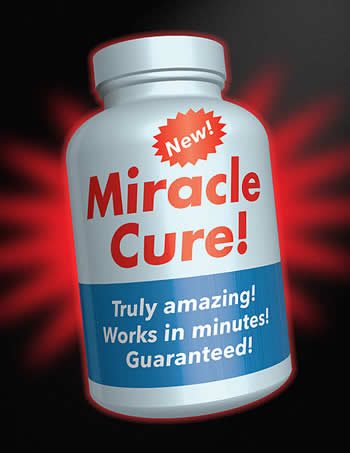
CAM: More branding than medicine.
One of the persistent themes of SBM is that CAM (complementary and alternative medicine, or integrative medicine) is nothing more than a marketing brand. Its recent popularity is not based upon new evidence or a changing paradigm of medicine as its proponents claim. Its popularity is increasing despite the lack of evidence for specific CAM treatments and despite a dedication to evidence-based medicine within the medical profession.
CAM is also modern mythology, which I guess all really effective advertising and branding is. It floats atop a number of demonstrably false marketing claims. One is that the popularity and use of CAM is surging. This is partly a self-fulfilling prophesy, and no doubt it is increasing, but the degree to which CAM is popular has been consistently exaggerated by proponents (largely as a way to justify its existence).
This myth is largely perpetuated by redefining CAM as needed, including things like prayer, massage, and taking vitamins. I suspect that praying for a sick loved-one has always been popular and doesn’t represent a trend toward CAM. When unequivocal alternative modalities are considered, their use is still tiny and not increasing. The most recent NIH survey found:
Use of acupuncture (1.1%), homeopathic treatment (1.7%) naturopathy (0.2%), and energy healing (0.5%) was miniscule.
Other myths of CAM marketing include that the treatments are “natural,” that they are entirely safe, and in many cases that they are ancient. Collectively these claims create an emotionally compelling narrative or image – we can almost see the “noble savage,” one with nature, ancient wisdom evident in their gentle gaze, as they lay their healing hands on the afflicted. Imagine a boardroom scene from Mad Men as they pitch this idea.
Perhaps the biggest CAM myth, however, is the notion that people turn to CAM primarily because they are dissatisfied with mainstream medicine. I think this is partly the default assumption that most people make, but it is also perpetuated by CAM proponents. So popular is this myth that I find it is common even among CAM critics and proponents of SBM.
The problem with this assumption is that it is at odds with the actual evidence that we have. Studies show that satisfaction with mainstream medicine is not an important factor in deciding to use CAM, that CAM users are generally satisfied with their mainstream care, and they use CAM because it aligns with their philosophy, and they simply want to expand their options.
A 2007 review found that people who seek CAM hold a number of beliefs and motivations. These include a desire for control, a belief in “natural” remedies and “holistic” medicine, and a belief that psychological factors are important to health.
Overall world view is also highly predictive of CAM use. Specifically, a world view researchers have called the “cultural creatives”:
This group is said to represent unconventionality and is characterized by commitment to causes such as feminism, environmentalism, spirituality, personal growth and a love of the foreign and exotic.
The evidence also suggests that the same factors are involved in maintaining CAM treatment. While CAM practitioners are quick to cite the alleged effectiveness of their treatments as the reason their customers keep coming back, CAM users cite empowerment, communication, and beliefs about treatment as their main reasons – even when they perceive that the treatment is not working. They also do not cite dissatisfaction with conventional medicine.
A 2015 survey of CAM use among cancer patients had similar findings. They found that attitudes toward CAM are what predicted CAM use. Positive attitudes toward CAM also correlated with being young, female, and college educated, factors which also correlate with the “cultural creatives.”
Conclusion
The evidence clearly shows that CAM is a cultural phenomenon, not a result of change in scientific thinking, and not an emergence of new evidence. It is a brand that taps into a particular subculture, one that values the natural, ancient, and exotic. Surveys also show that CAM use has leveled off in the last 10 years, perhaps because it has reached full market penetration in the target demographic.
However, there is still significant spill-over into the general culture. The dedicated minority of CAM enthusiasts have been successful in spreading their brand, and infiltrating specific markets, such as hospitals, universities, and pharmacies. They have been politically successful as well, securing dedicated research funding (which in practice is just another method of marketing) and favorable regulations.
They have also, quite disappointingly, put academics off their game. Most academics are completely unfamiliar with the CAM phenomenon and give it little thought (what we call “shruggies”). A few see it for what it is (an attack on the scientific basis of medicine) but feel constrained by the forces of political correctness, which are powerful within the halls of academia. This is a generational failure. How this is looked upon in the future will likely depend upon which philosophical outlook emerges as dominant.
At the very least we need to expose the facts as they are. The facts tell a very different story from the CAM marketing mythology.

